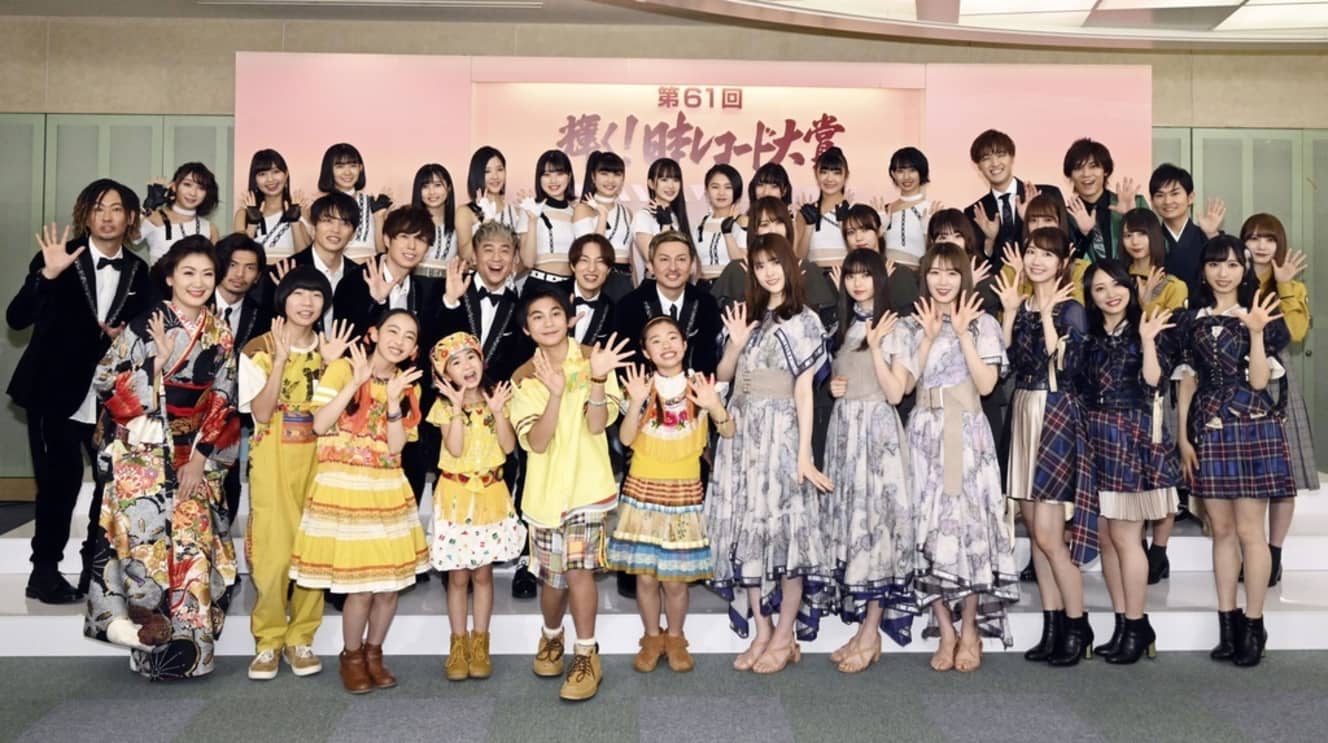“Japan Record Awards” Questioned for Choice of nominees for the Grand Prize

It was announced that announcer Shinichiro Azumi (50), who will be hosting the 65th Japan Record Awards (hereinafter referred to as “RECODAI”) to be broadcast live on TBS on December 30 (sponsored by the Japan Society of Composers), will be the general host for the 12th consecutive year, and actress Haruna Kawaguchi (28) will be hosting for the first time. As for the respective awards, they were already announced on November 21.
The 10 nominees for the Best Picture Award included “Kesera-sera” by “Mrs. GREEN APPLE,” a three-member male band that will also participate in the NHK Kohaku Uta Gassen on Omisoka, “Otona Blue” by the four-member female dance and vocal group “New School Leaders,” and “Sho” by Ado.
“The “Reco Dai” is supposed to take into account not only CD sales, but also online distribution figures and the degree of influence the song has on the public. The song that represented this year was undoubtedly “Idol” by “YOASOBI,” whose music video has been viewed more than 370 million times on YouTube.”
“However, “Idol” was not selected as a candidate for the Best Picture Award, and the “Special International Music Award” was given to “YOASOBI”. This led to a number of voices on the Internet questioning the selection method, with some saying, “I don’t know what on earth this award is for,” and “I don’t know any of these songs.””
“As in previous years, the judging process seems to have diverged from the sensibilities of music fans as usual. As a result of this continuing practice, the Grand Prize has lost its significance, and there is no merit in winning the award. The “Reco Dai” itself has become a completely unknown entity.”
However, an entertainment journalist who knows the inside story says that this is inevitable because of the environment surrounding the “Reco Grand Prix” and the composition of the judges.
“The judges consist of composers, reporters from sports and general newspapers, employees of TBS affiliate stations, music critics, and others, but most of them are from the “old man’s generation” and are not familiar with the music of young artists. Furthermore, since the mid-1990s, the “adult situation” has also been a major factor. It is no wonder that the music industry has diverged from the sensibilities of music fans.”
As a result, the average household viewer rating for TBS broadcasts (according to Video Research, Kanto region) peaked at 50.8% in 1977 and dropped to the 10% level for the first time in 1989. In recent years, the top rating was 17.6% in 2001, and last year’s rating was 10.7%, the third worst in history. These changes in viewer ratings tell the story of the history of RECODAI.
“Until the mid-1980s, the awards race was conducted in a “hard-hitting” manner, and the judges were bombarded with “live bullets” from the various entertainment agencies and record companies, and the passion they put into the Grand Prize was tremendous, and this was conveyed to the viewers.”
“The reason why the ratings plummeted in 1989 was because the former Johnny’s group withdrew from the show after Hikaru Genji, who won the Grand Prize in 1988. From the mid-1990s, the influence of “adult circumstances” increased. This led to a decline in the number of fans, and the backstage programs on New Year’s Eve became more powerful, and in 2005, the program’s rating dropped to 10.0%, the worst in its history.”
“Regular sponsors withdrew one after another, and the sponsorship slots themselves were reduced. This is said to be due in part to the suspicious death of the jury president in December 2005 and the “dark rumors” surrounding the cause of his death. The following year, the program was held on December 30 and viewer ratings recovered, but the incident is said to have had a significant impact on the loss of authority.”
The ratings for “Reco Dai” used to be high enough to compete with the Kohaku program in the background, but it has become a music special program held several times a year by other commercial broadcasters. Some people even say that they would rather watch “Reco Dai” because they can see artists who are really in season.
“It would have been better if the program had ended at the end of its 50th or 60th season, but in the end, it missed the right time to stop.” (TBS official).
It seems that no matter who wins the Grand Prize, it no longer matters to the general audience.
FRIDAY Digital welcomes information and tips from our readers. Please send your information to the following information form or to the official X.
Information Form: https://friday.kodansha.co.jp/tips
Official X: https://twitter.com/FRIDAY_twit

PHOTO: Shinji Hamasaki